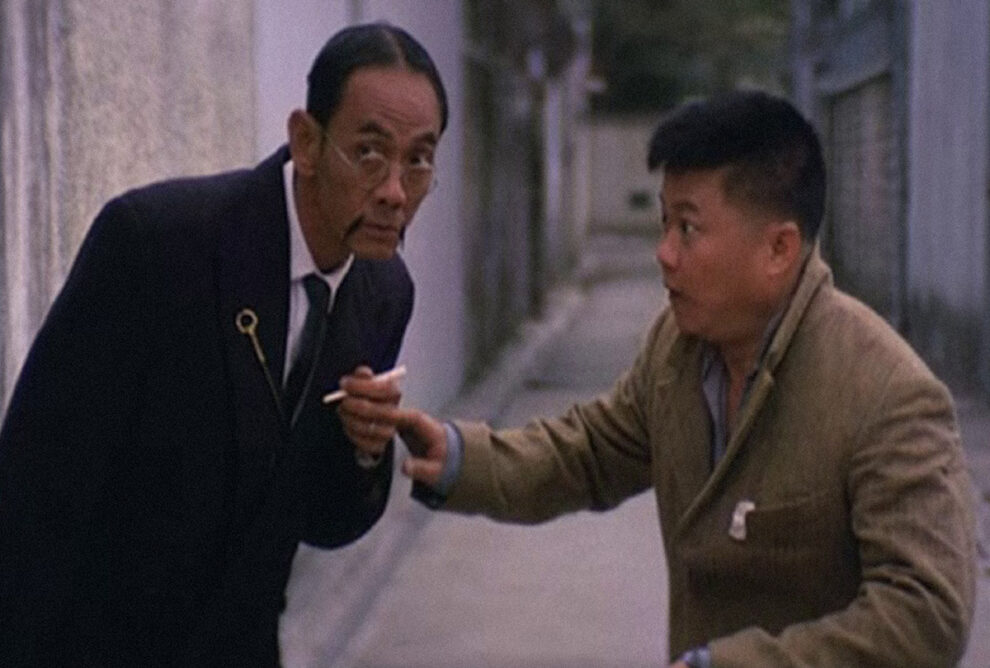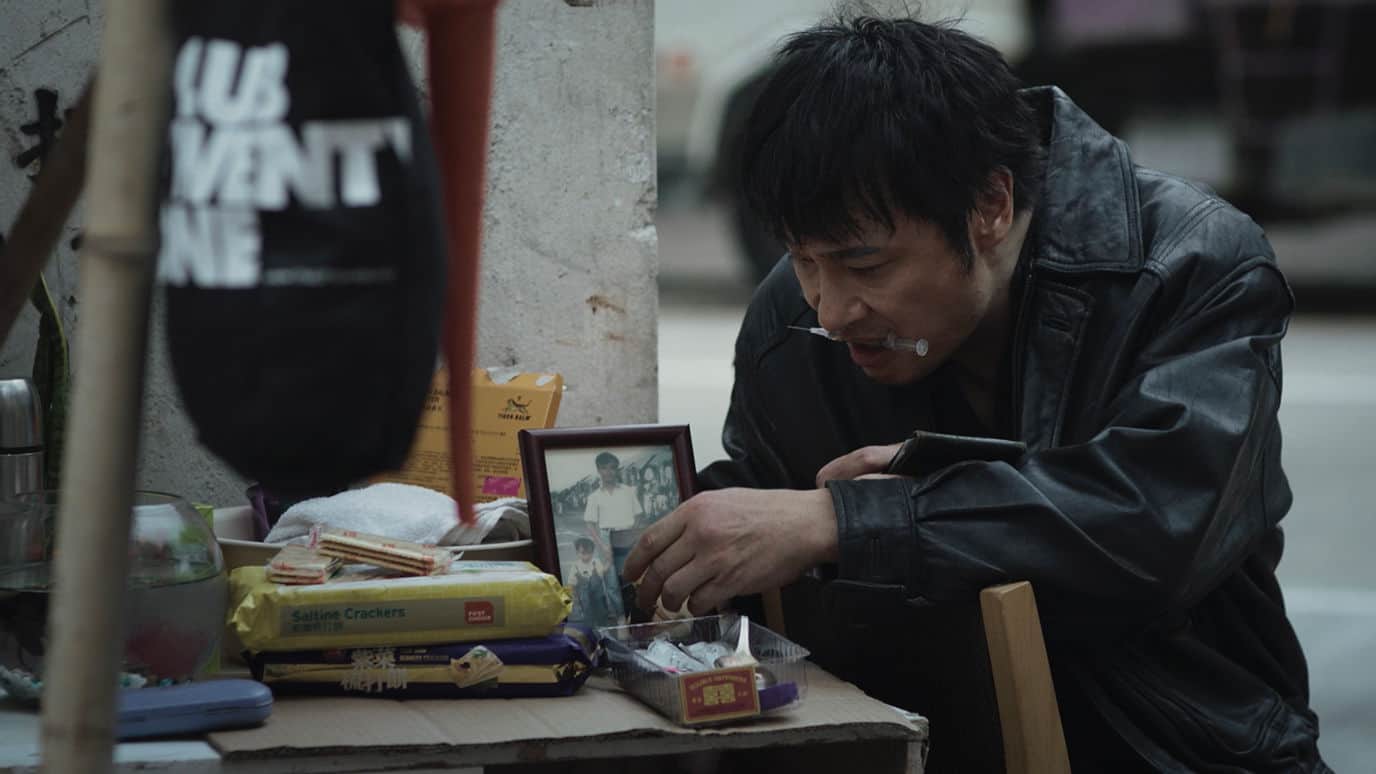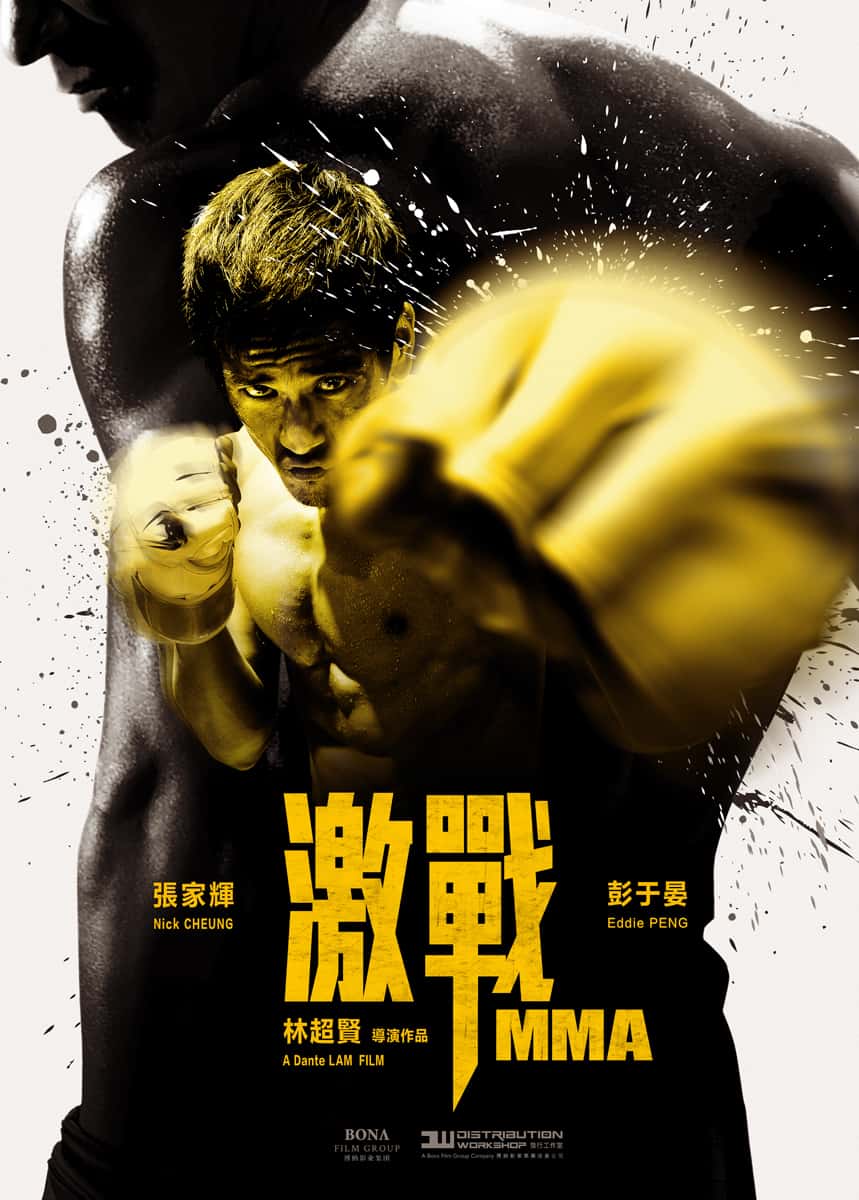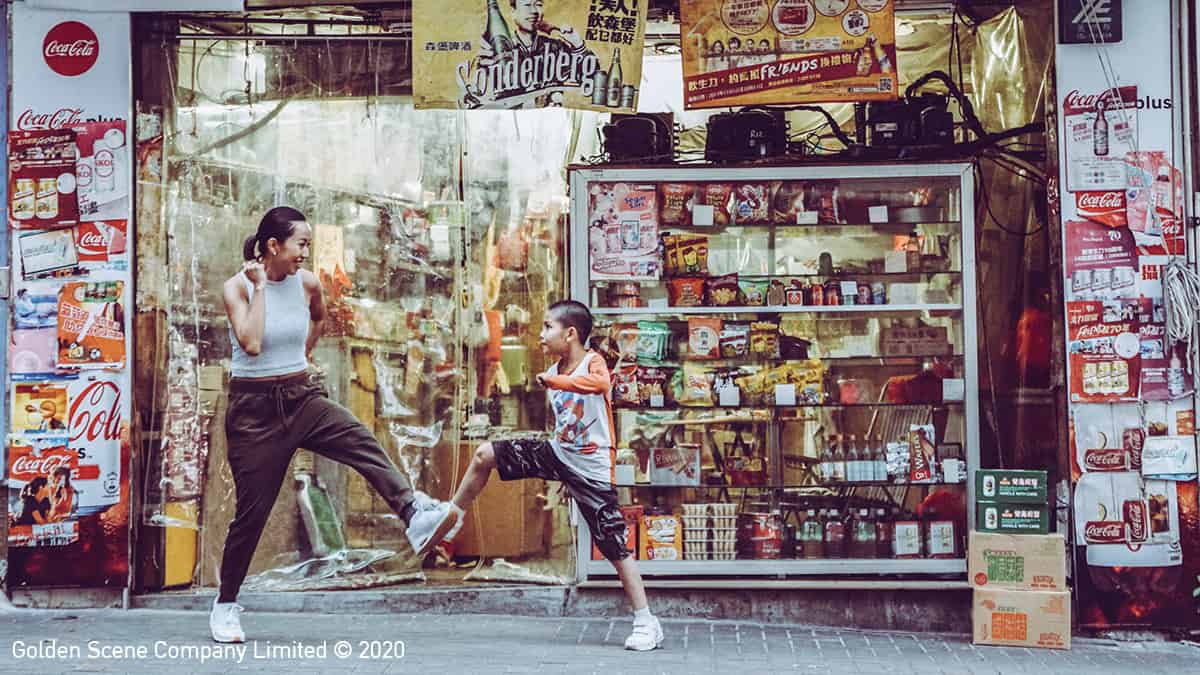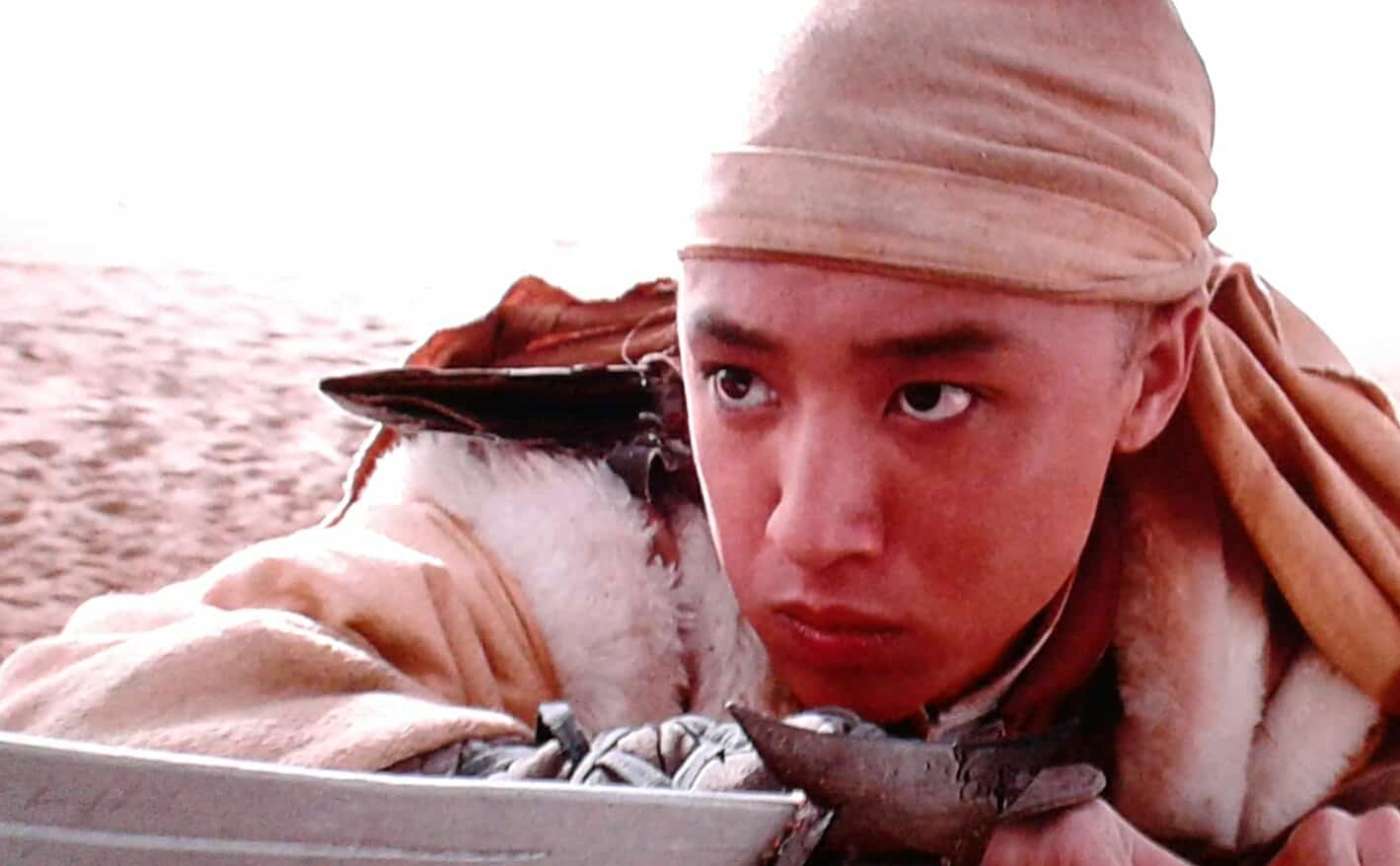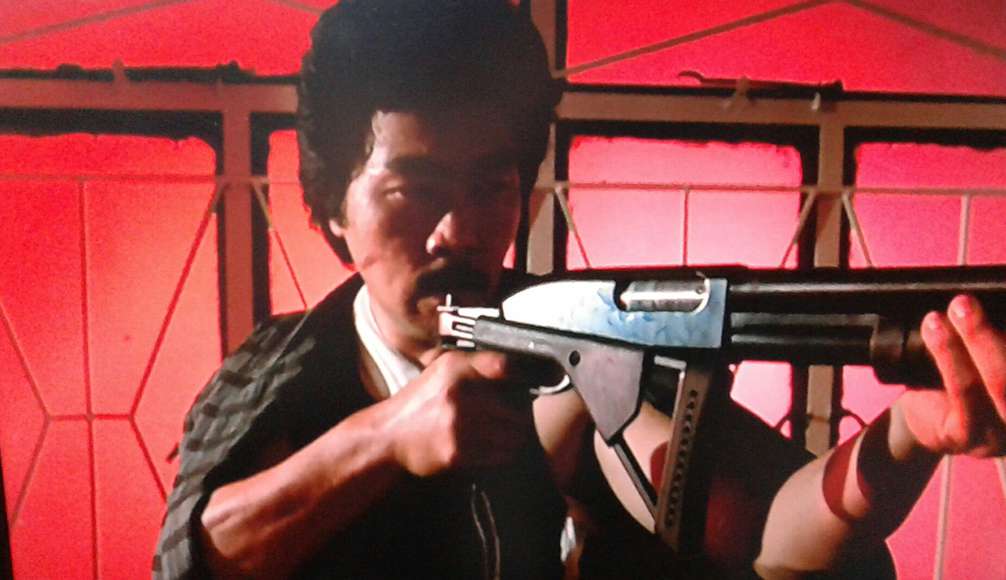Fittingly titled Comic Relief, Singapore's Asian Film Archive's (AFA) ongoing retrospective of the iconic duo Wang Sha and Ye Feng brings John Lomar's and Shaw Brothers Studios' endearing “Crazy Bumpkins” quartet back to the big screen. 26 titles, 3 talks and a free exhibition celebrate years of belly-aching laughter, a then ‘soothing' balm, as curator Yeo Min Hui writes, in the wake of widespread anxieties during Hong Kong and Singapore's rapid city transformations in the 70s and 80s. 2 weekends since the retrospective's opening, 2 of the 4 “The Crazy Bumpkins” films have been screened, and 2 more to follow, as will a second review. While thus far, the comedy does serve to criticize the city's consumerist ideals, its moral logic consequently, and intriguingly struggles to detach from the allure of wealth, chance and a better life. This review examines the troubled psyches of the first 2 chapters: “The Crazy Bumpkins” (1974) & “Return of the Crazy Bumpkins” (1975), that detests yet craves the “ideal city-state”, a shimmering metropolis of endless opportunity.
Leaving his ailing mother, village bumpkin Ah Niu (Ye Feng) follows his street-smart Big Uncle (Wang Sha) to Hong Kong for the quintessential pipe dream. A cheerful theme song lists Ah Niu's goals: to find work, send money home, eventually save up enough to buy land and retire proud. Since before the days of industrialization, this self-made hero story has been played out countless times, but reality could not be less simple. Across both movies, the running gag is the poverty cycle: Ah Niu and his Big Uncle endlessly trudge through elaborate schemes for a bit of buck, but keep losing it all to robberies, theft, debts or gambling.
In a chaotic neighborhood overrun with cops and robbers, Ah Niu's sincerity wins him a love interest, Ah Hua (Ai Ti), but also gets him into all sorts of comedic disasters, often ending with a police or delinquent after him. Despite manifold failures to assimilate, Ah Niu never quite gets the hang of city folk. To him, it sufficed to live by his mother's instruction: to always be honest, to keep gossip in his heart and away from his mouth, and to obey his uncle. To add fuel to fire, unbeknownst to Ah Niu, his uncle is actually a crook and scammer who wants to profit off him.
First released in 1974 to great success, the first installment's cliffhanger ending ushered in 3 sequels, and is now remembered as a keystone of Wang Sha's and Ye Feng's comedic oeuvres. But beyond just a trick for laughter, Ah Niu's look of goofy wonder as he first arrives in the city takes a potent step in paralleling Hong Kong's (and Singapore's) voyage towards the imagined ‘ideal city-state' during the 1970s. When Wang Sha and Ye Feng ventured from Singapore's then waning film industry to Hong Kong's, both places faced a curiously similar plight: city-states carving out survival beside much larger economies, grappling (or soon to be grappling) with a post-colonial reality. Beginning with the mid-60s, with Hong Kong's manufacturing boom and Singapore's newfound independence, citizens ran the race to convert to metropolitans. Biting one new reform after another, the narrative of an optimized future rang heavy, where one day, everyone would traverse the same system with the same single goal: to endlessly push growth. Growth of wealth, produce, efficiency. In 20 quick years, the cities were forced to grow up.
The transformed city in the bumpkin's world presents an unfathomable, magical land of opportunities, where logic and meaning has no place, and Ah Niu's life codes (to always be honest, to keep gossip in his heart and away from his mouth, and to obey his uncle) no longer hold up. (The exhibition guide by curator Yeo further articulates the use of slapstick humor to point out the ‘unreasonable' and ‘absurd' in Hong Kong and Singapore's then rising consumerist ideals) A repeated gag features Ah Niu witnessing multiple robberies, a peculiar choice of rite with which he practices any newfound social wisdoms. The first time, he loudly tells on the robbers who then beat him up. Having learnt his lesson, when he witnesses the next robbery, he proudly announces to the police that he has witnessed the entire crime but will divulge nothing, annoying the officer into detaining, and then beating him up again. The comedy asserts that Ah Niu is missing the gene of social nuance. A sense of ‘knowing' foreign to him, because his childlike goodness is oblivious to the city's negative influences. This gag of Ah Niu's lacking social awareness, more than equating primitivity with innocence, also equates a sophist social nuance with cunning manipulation. But though it seems to put Ah Niu in a good moral light, it does frustrate with the fact that he is dull witted.
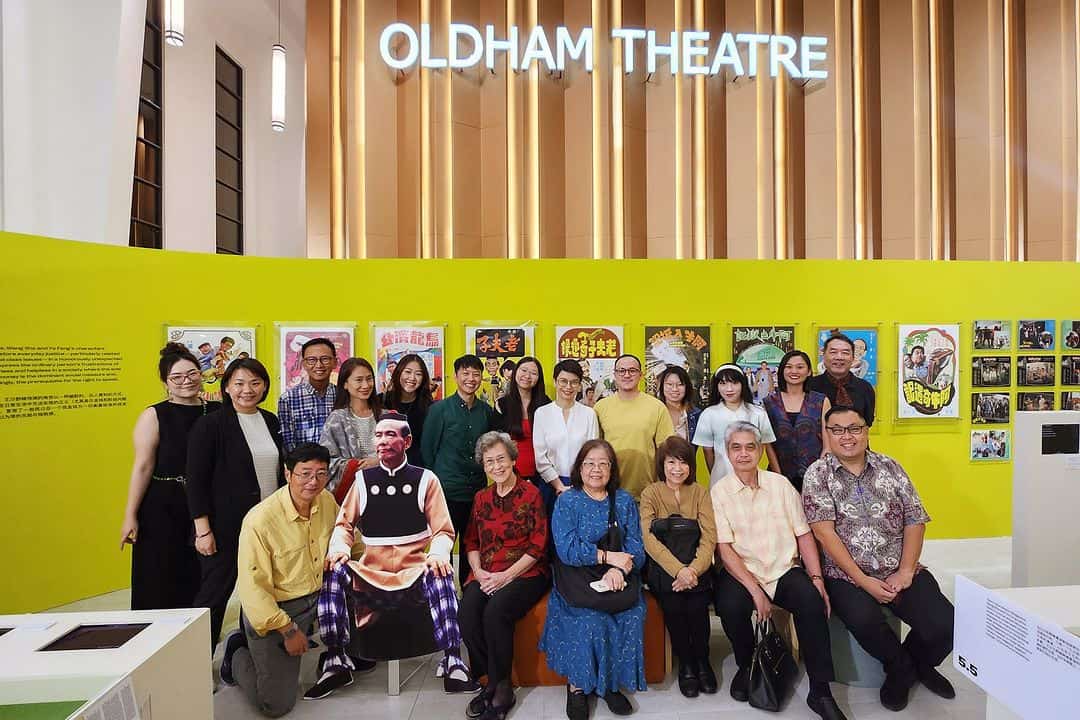
In the same manner as cinema returns us to dreams, and comedy relieves, “The Crazy Bumpkins” and its sequel ache for lost innocence. Ah Niu's lack of social intelligence, exaggerated gait and stutter create a ‘childlike' gaze upon society (an archetype witnessed in icons like Chaplin's tramp and Mr. Bean, now rightfully considered ableist). The child's pure and innocent gaze stands in for the past Hong Kong and its people, ‘country values' associated with filial piety, poverty and humility that supposedly dissipate with the money obsessed and unemotional city. These are all values that his Big Uncle, having perhaps succumbed to the city, hopes to discard with pride, though it is also tough to deny that his fun, criminal activities, where he masquerades as a wrestling referee or an angry jilted husband does shake the moral allure of Ah Niu's honesty and good virtue. As a con artist, Big Uncle devises and imbues his gags with so much performative finesse that demands our respect. Whenever consecutive scenes of Ah Niu's slow wit and humility turn tiresome, his Big Uncle's fascinating diversions bring us back to the altar of wit and wealth.
The blind spot of the honest village bumpkin versus heartless city dweller paradigm is the unspoken idea that if Ah Niu is socialized, he is no longer “special”. He will have lost his humility and kindness to the city, a fear that Ah Hua carries whenever Ah Niu becomes exposed to crime or wrongdoing. To remain good forever, Ah Niu must also remain poor. Even in vignettes where Ah Niu finds honest work, such as housekeeping for a wealthy woman, he is sabotaged by colleagues over fears that his accepting below rate wages will affect their salaries. Stuck in adolescence, Ah Niu is also stuck in time, before Hong Kong's and Singapore's progress. The terror of Ah Niu's relentless poverty suggests that as much as wealth and success is a fantasy for Ah Niu and his Big Uncle, the ‘good old days' of the post-war era might also be a sugar coated lie. And if Hong Kong does not progress, it falls into the lurch.
That the story only ever takes place in the city, save the very first opening scene where Ah Niu bids adieu to the village home of dreams we never see again, is also testament to the metropolis as an inevitability. In light of this, Big Uncle's later positive characterisation as a ‘good' city criminal: non-violent, resourceful (even artful) and at times, empathetic drives nuance against the country/city-poor/rich-humble/selfish binaries. Indeed, Wang Sha's use of physicality to portray the chameleon crook calls for a separate reading of a neoliberal, or even biopolitical reaction to the changing city. As an anti-hero, Big Uncle's ability to traverse and play the city game commands admiration in that he possesses the ‘knowing' which Ah Niu cannot, while still retaining some humanity. To our secret glee, he also becomes the proxy vessel with which Ah Niu's can engage in illegal activity, yet remain morally spotless in the audience's eye. In the end, for Wang Sha, Ye Feng and the people of Hong Kong and Singapore, there is no stopping the overtaking of mass consumerism. But unlike Ah Niu and his Big Uncle, we are not sentenced to choosing between stasis or the loss of our empathy and values. Even half a century later, as one thrives in today's city-state, the anxieties, doubts and tensions that arise momentarily find relief in the arms of cinema or the stage. That we continue to ponder the cost of losing ourselves to this rat race, means that in the end, we do still have a conscience.
Comic Relief: Film Retrospective and Exhibition on Wang Sha and Ye Feng runs until 7 April 2024 at the Oldham Theatre in Singapore. “The Crazy Bumpkins” (1974) and “Return of the Crazy Bumpkins” (1975) will each have a repeat screening on 10 and 17 March respectively.


